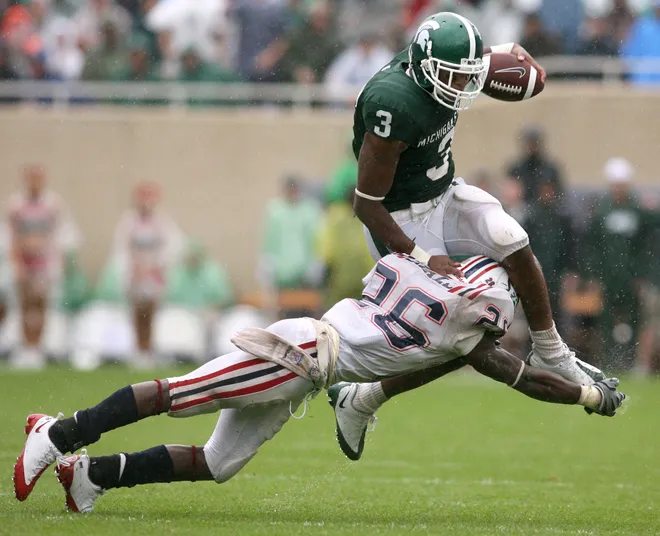I. Introduction

A. Importance of teamwork in sports
Teamwork is often touted as a crucial element in sports, as it fosters collaboration, communication, and synergy among team members. It allows athletes to combine their individual skills and strengths to achieve collective success. In team sports, teamwork is considered crucial for achieving common goals and winning games.
B. Identifying the non-critical factor in individual sports
However, when it comes to individual sports, such as tennis, track and field, or gymnastics, the dynamics change. While teamwork can certainly be beneficial in training or in support roles, it is not considered a critical factor for success in individual sports. This article aims to explore and shed light on this non-critical factor.
II. The Non-Critical Factor: Understanding Its Role
A. Defining individual sports and their characteristics
Individual sports are defined as athletic activities where athletes compete independently, without the need for teammates. This section will delve into the unique characteristics of individual sports, such as the absence of direct reliance on others and the sole responsibility for one’s success.
B. Analyzing the significance of teamwork in team sports
To better understand the non-critical factor in individual sports, it is essential to analyze the role and significance of teamwork in team sports. This subsection will compare and contrast the importance of teamwork between team sports and individual sports, emphasizing the differences in game strategies, communication, and reliance on others.
C. Recognizing the non-critical factor in individual sports
In individual sports, success relies heavily on the individual athlete’s skill, dedication, and performance. This subsection will explore the non-critical factor that sets individual sports apart from team sports: the lack of dependence on others for success. It will highlight how individual sports provide unique opportunities for athletes to take full responsibility for their performance and outcomes.
III. Focus on Individual Performance
A. Emphasizing personal skill development and improvement
In individual sports, athletes must prioritize personal skill development and improvement. This section will discuss the importance of dedication to practice and self-discipline in honing individual skills.
- Dedication to practice and self-discipline
Successful athletes in individual sports understand the importance of consistent and focused practice. This subsection will emphasize the need for athletes to commit to regular training sessions and develop self-discipline to maintain a rigorous practice schedule.
- Specific training techniques for enhancing individual performance
To enhance individual performance, athletes can incorporate specific training techniques tailored to their sport. This subsection will explore various training methods that can help athletes improve their strength, endurance, agility, and technical skills.
B. Prioritizing mental preparation and self-belief

Mental preparation and self-belief play pivotal roles in individual sports. This section will highlight how athletes can prioritize their mental well-being to excel in their respective disciplines.
- Gaining confidence through mental training exercises
Confidence is crucial for success in individual sports. Athletes can utilize mental training exercises, such as visualization, positive self-talk, and goal-setting, to bolster their self-belief and performance in high-stakes situations.
- Overcoming obstacles and pushing personal limits
In individual sports, athletes often face unique challenges, such as performance anxiety, self-doubt, and setbacks. This subsection will explore strategies for overcoming these obstacles and pushing personal limits through resilience, perseverance, and mental fortitude.
IV. Self-Responsibility and Accountability
A. Understanding the individual’s role in their own success

In individual sports, the responsibility for success lies primarily on the individual athlete. By taking ownership of their training and preparation, athletes can set themselves up for greater achievements. This section will explore the importance of recognizing and embracing this role.
- Taking ownership of training and preparation
Effective training and preparation are vital for individual sports success. Athletes must understand the significance of this responsibility and actively engage in their training routines. This subsection will discuss the various aspects of training that athletes should take ownership of, such as structuring training programs, planning workouts, and monitoring progress.
- Setting personal goals and striving for self-improvement
Setting personal goals is crucial for individual athletes to have a clear direction for their performance. This subsection will emphasize the importance of setting measurable, achievable, relevant, and timely (SMART) goals. It will also suggest strategies for self-improvement, such as focusing on weaknesses, tracking progress, and celebrating milestones.
B. Cultivating a strong work ethic and self-motivation
A strong work ethic and self-motivation are essential for athletes in individual sports. This section will delve into the mindset and strategies needed to cultivate these qualities.
- Employing self-motivational strategies
Maintaining motivation can be challenging, especially in the absence of teammates. This subsection will provide tips and techniques to help athletes stay motivated, such as establishing a routine, finding intrinsic motivation, visualizing success, and using positive self-talk.
- Building resilience and perseverance in the face of challenges
Adversity and setbacks are inevitable in sports. In individual sports, athletes must learn to bounce back and persevere in the face of challenges. This subsection will explore how athletes can develop resilience by embracing failure as an opportunity for growth, seeking support, and maintaining a positive mindset.
V. Leveraging External Support and Resources

A. Utilizing coaches and trainers for guidance
Although individual sports are primarily self-driven, athletes can still benefit from external guidance. This section will focus on the role of coaches and trainers in providing valuable support and expertise.
- Seeking professional advice and expertise
Coaches and trainers bring valuable knowledge and experience to the table. This subsection will highlight the benefits of seeking professional advice, including technical guidance, strategic input, and personalized training programs.
- Incorporating feedback and constructive criticism
Feedback is crucial for individual athletes to identify areas of improvement. This subsection will explore effective ways to receive and incorporate feedback from coaches and trainers, emphasizing the importance of being open-minded and receptive to constructive criticism.
B. Benefiting from technological advancements and sports science
Individual athletes can leverage modern technology and sports science practices to enhance their performance and well-being.
- Harnessing technological tools for individual performance analysis
Technological advancements have made it easier to track and analyze performance data. This subsection will discuss various tools and devices that can assist athletes in monitoring their performance, including wearable devices, video analysis software, and performance tracking apps.
- Employing sports science practices for injury prevention and recovery
Injury prevention and proper recovery are essential for athletes in individual sports. This subsection will explore sports science practices that can aid in injury prevention, such as strength and conditioning programs, proper nutrition, and adequate rest and recovery strategies.
VI. Conclusion
In conclusion, excelling in individual sports requires self-responsibility, accountability, and leveraging external support. By understanding their role in their own success, athletes can take ownership of their training and set meaningful goals. Cultivating a strong work ethic, self-motivation, and resilience will help navigate challenges effectively. Additionally, utilizing coaches, trainers, and technology, while embracing sports science practices, can provide valuable guidance and resources for optimal performance. With a combination of self-dedication and external support, athletes can maximize their potential in individual sports and achieve remarkable outcomes.



